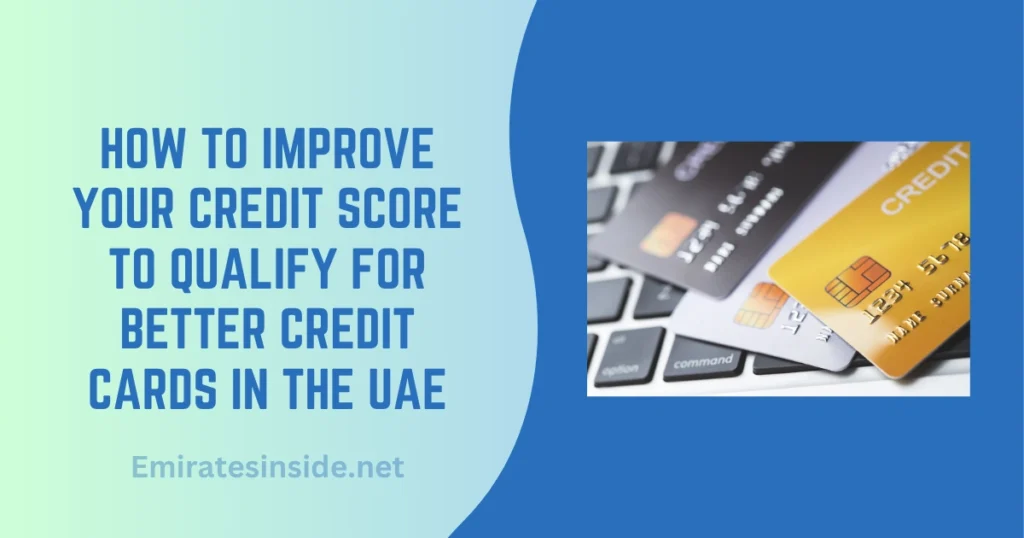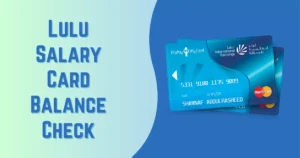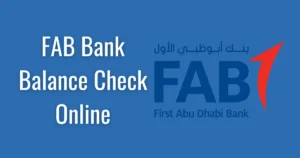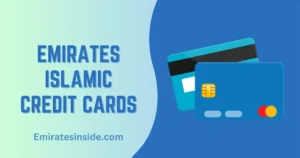How to Improve Your Credit Score to Qualify for Better Credit Cards in the UAE
In the UAE, your credit score is more important than most people realize. It’s not just a number. It’s a sign of how well you manage your money. When you apply for a credit card, banks check this score before they decide. Even if your income is high or your job is stable, a low score can hold you back.
If you’ve been searching for the exact requirement for credit card approval, you’ll find that a solid credit history ranks high on that list. Many people want better cards with extra features, but they’re not sure how to get there. The first step is building a strong score. It won’t happen overnight, but with the right steps, you can make real progress.

Here are simple, clear ways to improve your credit score and increase your chances of getting approved for better cards.
1. Always Pay Your Bills On Time
Banks want to see that you pay what you owe without delay. That includes credit card bills, loan payments, and sometimes even your phone bill. If you miss a due date, it’s recorded. And the more missed payments you have, the harder it becomes to earn trust again.
Start by making a list of your monthly payments. Then set reminders a few days before each one. If you can, set up automatic payments to avoid last-minute problems. On-time payments are the most powerful way to raise your score.
2. Keep Your Card Balances Low
It’s tempting to use a credit card for everything. But using up most of your credit limit can hurt your score. Even if you pay it all back later, high usage looks risky to banks.
Try to stay well below your limit each month. If your card has a limit of AED 10,000, keep your spending under AED 3,000 to 4,000. That shows control and planning. It also helps you avoid stress when the bill arrives.
3. Avoid Applying for Too Many Cards
Each time you apply for a card, a record of that request is added to your credit report. If you make several applications in a short time, it may seem like you are struggling financially.
Be selective. Apply only when you know you meet the bank’s rules. If you’re aiming for the best credit cards, it’s smarter to wait until your profile is ready. A clean, well-paced record looks much better than a string of rejections.
4. Check Your Credit Report
Mistakes happen more often than you think. A payment marked as late when it wasn’t, or a loan listed that you’ve already cleared—these errors can drag down your score.
You have the right to see your credit report. Request it from the official credit bureau. Go through each entry. If something looks wrong, report it and ask for a correction. Fixing even one small mistake can make a real difference.
5. Keep Old Accounts Active
Some people think closing an old card will help their score. That’s not always true. A longer credit history shows banks that you have experience with managing credit. If you have an older card that’s in good standing, keep it open.
You don’t need to use it often. A small purchase every few months is enough to keep the account active. That history can add strength to your credit profile.
Final Thoughts
Good credit takes effort, but it pays off. A better score means better access. It means you’re more likely to meet the requirement for credit card approval, and to qualify for the best cashback credit cards in UAE.
Focus on the basics: pay on time, use less than you’re allowed, and watch your records carefully. These steps build trust with banks. Over time, that trust opens doors to more choices, better offers, and more control over your financial future.






